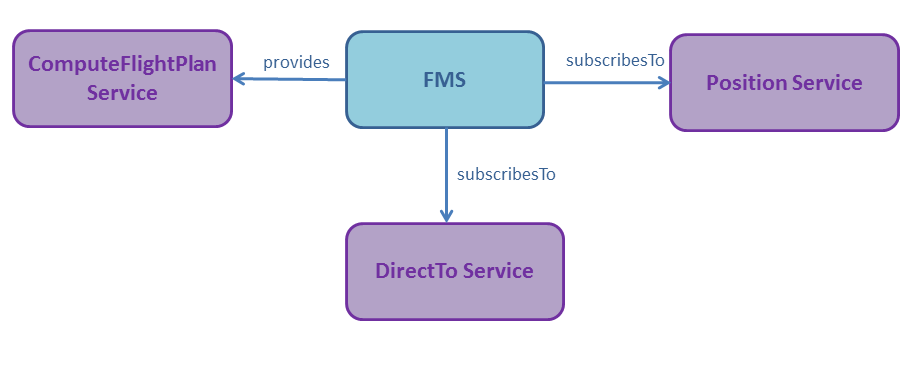Home
Categories
Dictionary
Glossary
Download
Project Details
Changes Log
What Links Here
FAQ
License
Module
1 Modules types
1.1 Modules data sharing
2 Declaring the module implementation
3 Declaring the Services interface
3.1 Example
4 Declaring the module properties
5 Example
6 Notes
7 See also
1.1 Modules data sharing
2 Declaring the module implementation
3 Declaring the Services interface
3.1 Example
4 Declaring the module properties
5 Example
6 Notes
7 See also
Modules are the executable units in the Applications. A Module can subscribe to or provide one or several services.
Several types of modules are supported:
If two modules are hosted in two different applications, they won't share their datas for any Services. The modules hosted in the same application will share the datas for the same services. On the contrary, if two modules are in hosted in two different applications, they will share the their datas for all Services[2]
The declaration of the Service interface is performed in the Module configuration:

Modules types
Main Article: Modules types
Several types of modules are supported:
- Modules which have a Java implementation. These are the default module types. For detailed information on how to develop and configure a Java module, see the Java modules article
- Modules which are implemented in Python
- Modules which are implemented in Groovy scripts
- Modules which are implemented in C[1]
Or more specifically, as C dlls
- The unique owner module, which allows to create and control the Framework from a parent application
Modules data sharing
Main Article: Modules data sharing
If two modules are hosted in two different applications, they won't share their datas for any Services. The modules hosted in the same application will share the datas for the same services. On the contrary, if two modules are in hosted in two different applications, they will share the their datas for all Services[2]
If the Modules are executed in the same JVM, of course
.
Declaring the module implementation
The declaration of the module implementation depends on the module type:- Through the
implementationelement for Java modules. See Java modules - Through the
groovyImplementationelement for Groovy modules. See Groovy modules - Through the
pythonImplementationelement for Python modules. See Python modules - Through the
cImplementationelement for C modules. See C modules
Declaring the Services interface
Main Article: Service implementation
The declaration of the Service interface is performed in the Module configuration:
- The module declares for which services it interfaces to
- For each Service it interfaces to, it specifies if it is a provider or a subscriber of this Service
- Several properties can be defined depending on the Service type
Example
In the following example, theFlightManagementSystem module:- subscribe to the
positionpublish service - subscribe to the
directToevent service - provides the
computeFlightPlanrequest-response service
<module name="FlightManagementSystem" id="1" > <interfaces> <subscribe service="position" /> <eventReceived service="directTo"/> <requestReceived service="computeFlightPlan"/> </interfaces> </module>

Declaring the module properties
Main Article: Module properties configuration
Example
<module name="FlightManagementSystem" > <implementation path="org.da.aircraft.fms.FMS" > <initEntryPoint method="init" /> <startEntryPoint method="start" /> <defaultReceiveEntryPoint method="receive" /> <defaultSendEntryPoint method="send" /> </implementation> <interfaces> <subscribe service="position" /> <eventReceived service="directTo"/> <requestReceived service="computeFlightPlan"/> </interfaces> </module>
Notes
See also
- Modules types: This article is about the modules types which are supported by the framework
- Architecture: This article present the architecture of the prototype framework
- Application: Applications are the top-level element of the framework architecture
- Module configuration: This article explains how a Module is specified in the configuration
×
![]()
Categories: concepts